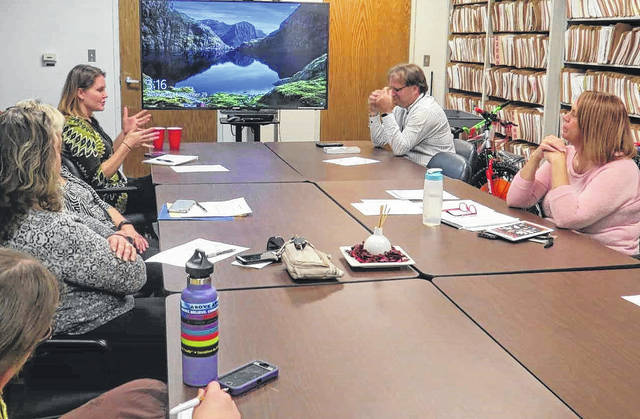ROCKINGHAM — The Richmond County Drug Endangered Family Task Force has been awarded a $12,000 grant which will allow the task force to continue its work to prevent overdoses from prescription and illegal drugs in Richmond County.
The grant is the second awarded by Community Impact NC to fund the continuing development and work of the DEFTF which forms community partnerships, raises awareness, and educates the community on opioid misuse in hopes of reducing overdoses and increasing access to treatment. Richmond County is one of about five counties given the opportunity to receive this funding, according to Department of Social Services Director Robby Hall.
The grant does not require the county to match any funds.
“This is a really big deal,” said Commissioner Tavares Bostic, who is a member of the task force, at the meeting of the Board of Commissioners Tuesday. “This task force is made up of individuals who have actual knowledge in mental health and substance abuse — I mean you name it and it’s on this task force.”
The DEFTF formed in Fall 2017 with members that included local health care service providers, law enforcement, faith and school system leaders, and researchers — led by the Department of Social Services — under the guidelines laid out in North Carolina’s Opioid Action Plan, which was released in June 2017.
The action plan aims to reduce the number of unintentional opioid-related deaths and emergency department visits by 20 percent by 2021. The action plan also seeks to create any decrease in the oversupply of prescription opioids and any increase in access to Narcan, a drug that can reverse an overdose, and to treatment and recovery options.
Hall said that Richmond County is in the top 10 in opioid deaths in North Carolina. The Richmond County Board of Commissioners declared a the issue of opioids misuse a crisis in February 2018. At the time, Richmond County was ranked fourth in the state in opioid pills per resident at 132.2 — well above the state average of 78.3 — according to statistics from the County Leadership Forum on Opioid Abuse.
The county’s rate of unintentional medication and drug overdose rates were also significantly higher than the state average at 18.8 deaths per 100,000 residents compared to 12.2 statewide, according to the N.C. State Center for Health Statistics.
The task force releases monthly reports on data it has gathered relevant to the fight against opioid addiction and substance abuse. The March report showed that 145 infants have been born with harmful drugs in their systems since collection of this data began in Richmond County in August of 2017. Of those, 51 percent were born with marijuana in their systems, 13 percent with cocaine, 15 percent with buprenorphine (a painkiller used to treat opioid addiction), 10 percent with opiates, 5 percent with methadone, 3 percent with amphetamines, and 1 percent born with each oxycodone and suboxone.
North Carolina defines a “substance affected infant” as one with “a positive urine, meconium or cord segment drug screen or one whose mother has had a medical evaluation, including history and physical or behavioral health assessment indicative of an active substance use disorder, during the pregnancy or at the time of birth.”
The task force is currently pushing for Richmond County service agencies to register on N.C. 2-1-1, an information and referral service provided by United Way of North Carolina that provides families and individuals a 3-digit number they can call to obtain free and confidential information on health and human services and resources within their community.
The DEFTF is also working to build a Youth Subcommittee to address substance misuse issues and education needs for youth, according to task force coordinator Theressa Smith.
In North Carolina, three people a day die from opioid overdose. Richmond County is ranked fourth in the state in opioid pills per resident at 132.2, well above the state average of 78.3, according to state statistics.

